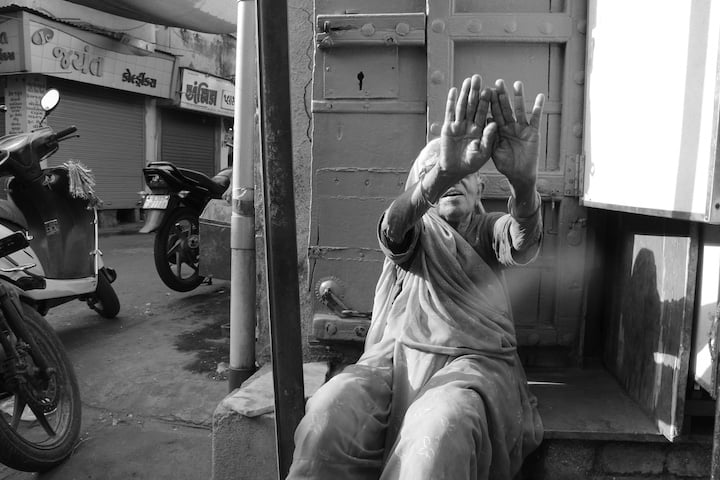
A friend once told me, “I wish Christianity wasn’t such a wimpy religion! You know, turn the other cheek, go the extra mile, blessed are the meek….” She was tired of it. But the fact is, Christianity is not a wimpy religion (though I contend it’s about nonviolence). It is, quite often, poorly taught. Luke 6:27-38 and its parallel in Matthew are among the most important bits of scripture we get wrong. In light of the misunderstanding, many Christians choose to ignore these teachings. Over the centuries “turning the other cheek” became equated with doormat passivity, letting people walk all over you. But it actually means the opposite![1] Let me explain.
Rob the Abuser of Dominance
In this part of Jesus’ teaching labeled the Sermon on the Mount, he offers an alternative to violent retaliation, the idea of an “eye for an eye,” or equal retribution. Yet what he teaches as the alternative requires courage, challenges oppression, and is the opposite of doormat passivity. In the Matthew version, Jesus says, “If anyone strikes you on the right cheek, turn the other also”—specifying the right cheek. In Jesus’ day, the left hand was reserved for select unclean tasks. Therefore, when a person struck someone, they used their right hand.
Imagine hitting someone on the right cheek, as Jesus specifies, with your right hand. This is a backhanded slap. A backhanded slap was reserved for humiliation, for slapping servants or children, and probably not uncommonly, wives. In the teaching, Jesus instructs someone who is hit in this demeaning way to stand tall and offer the abuser the left cheek. This is saying, “Now give me your best shot and treat me like an equal.” In this case the oppressor can either acknowledge the person’s equality and strike them on the left cheek, or refuse the person’s demand. Either way, the person who’s been struck levels a challenge. In doing so, they have robbed the abuser of their dominance.

Expose the Greedy
Reverse the Power Differential
A final challenge is leveled in the passage in Matthew: “if anyone forces you to go one mile, go also the second mile” (Matt 5:41), which refers to Roman soldiers forcing subjects to carry their packs. While soldiers commonly forced subjects to carry their load, an “enlightened” law limited to one mile the distance a soldier could conscript a subject in this way. Now imagine you reach the one-mile mark and the soldier demands you return his pack. But you don’t return it. You insist: “Oh no, I’ll keep going. Not to worry. I’m just getting started!” In this scenario, you reverse the power differential as the soldier must now ask you to take off his pack. He can in fact be punished if you continue to haul it for him. Again, in this reversal scenario, you expose the dominator in a way that seizes initiative and closes the power gap.
Rather than commending passivity, these teachings of Jesus expose the fragility of the oppressor’s power! Sure, the oppressor can back-hand you again, or wrestle your cloak back onto you so you aren’t standing there naked, or demand you return their pack before they get in trouble. But in the meantime, you have seized power, you have agency you didn’t have before. You have stood up, exposing to them and any onlookers how fragile their dominance really is. This jibes with Jesus’ teachings about loving enemies. Exposing the actions of an oppressor is the most loving action there is. Helping a person to see themselves as they truly are, is an act of love.
Find Creative Ways to Stand Up Nonviolently
Part of the astuteness of Jesus’ teaching is his understanding of the powerful, who rely desperately on ill-gotten dignity and ego. More than anything, they are threatened by being exposed. Exposure sends them into a panic (or a 3 AM tweet-storm), that only amplifies their inherent weakness. Jesus and his later interpreters understood this. Most people will not confront the kinds of threats outlined in Jesus’ sayings, or the sort faced by Gandhi or MLK, Jr.—high-profile exemplars of the techniques Jesus taught. But each of us experiences dominating forces in our lives. This can be a boss at work, a relative or neighbor who traffics in intimidation, a beloved who cannot transcend ego for the sake of love. In each case, Jesus’ teachings apply. We are most certainly not commended to fall limp like a mat and let people trample us. We are advised to stand tall and find creative ways to reverse the situation nonviolently, exposing the absurdity and inherent weakness of the oppressor. Not only will we stand up for ourselves when we proceed this way, we will chip away at the illusions of the oppressor. This is love at its finest.
[1] A big nod to late New Testament scholar Walter Wink for expertly interpreting these passages and changing the narrative around them. For more, see his Engaging the Powers (Fortress Press, 1992).
If you liked this article, please leave me a comment below; I am interested in your perspective. To support my writing, please subscribe and share with a friend!
Wren, winner of a 2022 Independent Publishers Award Bronze Medal
Winner of the 2022 Independent Publisher Awards Bronze Medal for Regional Fiction; Finalist for the 2022 National Indie Excellence Awards. (2021) Paperback publication of Wren , a novel. “Insightful novel tackles questions of parenthood, marriage, and friendship with finesse and empathy … with striking descriptions of Oregon topography.” —Kirkus Reviews (2018) Audiobook publication of Wren.

















